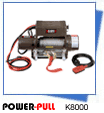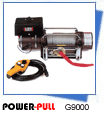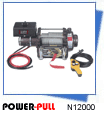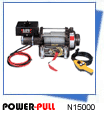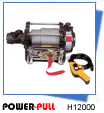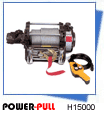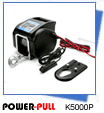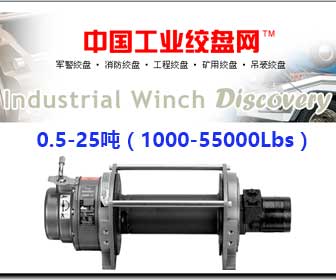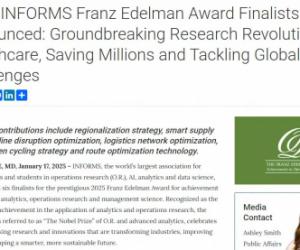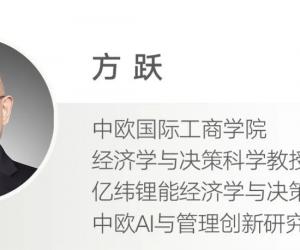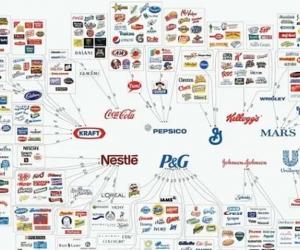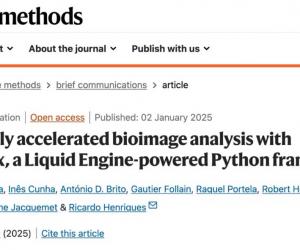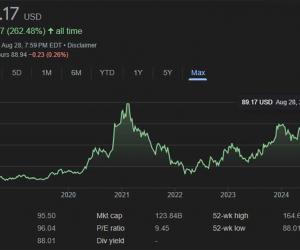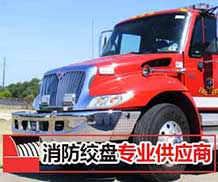投资于投币洗衣房:把机会变成红利
下面是由四个部分组成的系列投资于投币洗衣房文章的第一部分。该系列文章的目的是将各种机会简捷明快地描绘出来,其中包括投资于投币洗衣房的不同途径。第一部分集中阐述了这种投资的一般认识以及启动这种投资的一些基本情况。
洗衣是我们最基本的需求之一。虽然也有一些更便宜的方式完成这一任务,比如小容量的家用洗衣机以及在晾衣绳或阳台上晾晒衣服,但人们还有一种看法:时间是我们最珍贵的商品之一。知道了这一点,我们就不难理解为什么美国和其它一些国家的投资者多年来非常看重投币洗衣房。
美国投币洗衣协会理事、在美国Alliance洗衣系统公司服务近30年的杰?麦克唐纳说:“干净的衣服是生活的必需品。人们非常关心他们的仪表,想有一个好的仪表,想做成功人士。”
Alliance洗衣系统公司负责国际销售的副总裁李?威尔逊说:“我想这类投资的一个好处就是洗衣是生活所必需的。他补充说,当把一些大的衣物如床罩和被子这类因素考虑进去时,投币洗衣对于投资者来说就有了一个稳固的收入基础。
投币洗衣的一个主要卖点就是它可以明显地节约时间。大容量的洗衣机可以使顾客在比家里洗衣花费短得多的时间内完成洗衣任务。在美国,一般家庭每周大约产生8车(一车为洗衣机一次所洗的量——编者)的衣物需要洗涤。洗一车需要花费约1个小时。与此对照,用大容量的投币洗衣机进行洗涤可以把在家里洗需要近 8个小时才能洗完的任务减少到约一个小时。
麦克唐纳说:“投币洗衣使你节省了大量的时间。”
有眼光的投资者的机会
虽然中国也许没有许多投币洗衣房开张,美国Alliance洗衣系统公司中国市场区域销售经理张原女士则预测这种机会存在着。
她说:“没有多少投币洗衣房也即意味着机会的存在。虽然美国的经验不能100%地拷贝过来,但对于那些想开展这种业务的人来说绝对是一个参考。”企业家只需看一看美国零售商在中国开展业务的数字以及其它西方的广泛影响就可得出这样的暗示:投币洗衣概念是可以成功的。
张说,在台湾,投币洗衣房正开始大量涌现。这一市场的出现主要源自设备经销商。他们看到了这一需求并投资于投币洗衣房。
Alliance洗衣系统公司亚洲区域销售经理Andrew Kan说,一位南韩经销商已看到开办小规模的投币洗衣房获巨大成功的例子。韩热飞(KHF)几年前开了几家小型的投币洗衣房作为尝试。今天,该经销商已把这个概念发展成SELFIA特许连锁样板,并拥有40家投币洗衣房。
在这个例子中,KHF除了指导新加盟商怎样经营这种业务外还销售设备。Kan补充说,由于这个概念是如此的成功,所以其他竞争者正拷贝这种模式。
为什么投资?
投币洗衣能成为有吸引力的投资项目有几个原因,其中之一就是投币洗衣属现金买卖。交易时,店主在前台收到为顾客提供服务而得到的付款。人工由顾客提供,这也意味着多数时候没有雇员因此也就比其它类投资的管理职责更少。
另外一个好处就是投币洗衣业务有一个可以很好预测的成本结构。
威尔逊说:“对投资者来说成本相对易于控制。你坐下来就可计算你的成本。”费用包括租金、水电气费用、维护费用和设备费用。他说,投资者然后可以把这些成本与预期产生收入的投资模型进行对比。
而且对于决意要使其生意不断壮大的店主来说,那些预测会很快成为现实。
麦克唐纳说:“投币洗衣依然是一个投资回报极高的项目。”但他补充说,要想获得那些回报,店主必须积极主动。“经营好投币洗衣房确实需要投入精力,高投资回报并不会自动产生。店主必须管理投币洗衣房。”
开展投币洗衣业务从建立生存能力、决定投资规模和分析成本开始。
麦克唐纳说:“这需要一点才干。”
美国的投币洗衣房一般需要投资者提供25%的项目费用。在目前,中国的个人融资系统中有难度获得企业贷款。虽然这可能是一个限制因素,但洗衣设备经销商正与租赁公司合作开发着新的途径。
张说,另一个限制因素可能是店面租金的费用。城里的昂贵店面加上首付三个月租金以及长租协议对于开办一个新洗衣房来说风险太大了。
租用条款会有所不同,但在美国,大多数投币洗衣房店面的租期都以10年为基础,之后每两年或五年续签一次。
她说:“如果人们不能确定投币洗衣房能不能赚钱,他们就会对投资迟疑不决。”
然而,威尔逊毫不犹豫地指出,在中国,投币洗衣这种崭新的概念对投资者实际上也许是一个利好。
他在谈到通过开小规模的投币洗衣房来限制投资时说:“在进入投币洗衣市场时,你既可以大投入,也可以投入很少。”投入的设备少,店面租金就会相应减少,因此就相对容易开起来。
威尔逊补充说,投币洗衣房的规模可小至6台洗衣机8台烘干机,亦可大至50台洗衣机和60台烘干机,或更多。
事实上,小规模的投币洗衣房在一些市场上如英国已经成为一个极成功的公式。威尔逊说:“你可以把投币洗衣房开得很小而且还可靠它过活。”
韩国的SELFIA概念使店的规模保持得很小,设备配置做到了不能再少的程度。典型的加盟店包括3台Speed Queen(速比坤)30磅洗衣脱水机,2-3台Speed Queen(速比坤)30磅烘干机,3-4台Speed Queen(速比坤)高效H型前装料洗衣机。
位置第一
在谈到新投资者需要考虑的三个最重要的因素时,威尔逊说:“位置,位置,位置。选址不好,投币洗衣房就开不好。”他还补充说,经销商在很多时候可以为新投资者提供选址方面的帮助。
麦克唐纳说:“尽管永远没有保证,但一般来说如果位置不错,投币洗衣房就能生存下去。”
投资者需要寻找一个挨近主要的人口密集的居住区的地方。在选址方面其它需要考虑的因素包括挨近其它商业和交通繁忙(行人和车辆)的地方。
Kan说:“我们相信,将会有越来越多的投币洗衣房开在中国的大中城市。这是因为中产阶级收入的不断增加以及年轻夫妇因工作繁忙而没有时间洗衣。许多富有旅行经验的投资者将会意识到有机会将投币洗衣引入巨大的中国市场。”
在大学里开投币洗衣房
挨近大学开投币洗衣房也是一个不错的位置选择。张说,许多大学都提供家用洗衣机洗衣,但没有烘干机。所以,与这类机构进行合作、利用校园卡系统支付洗衣费用的机会也是存在的。
希望减少财务风险和资金投入的投资者可以从有可能支付较低场地租金的校园投币洗衣房获得好处。
张说:“大学不会自己投资,但因为投币洗衣房有助于大学改善学生的生活条件,所以他们会很高兴有人开这样一家投币洗衣房。”她补充说,商用洗衣机和烘干机还有助于忙碌的学生更快地洗好他们的衣物。
共享的利益关系为投资者带来了巨大的客户群,而大学同时也为学生们提供了额外的便利服务。
确定好了位置,投资者接下来就需要敲定他们的商业计划。
在该系列文章的第二部分,我们将阐述启动投币洗衣房项目的初始步骤,包括制定时间表、找到经销商和其它供应商。
Turning Dividends: Vended laundries present opportunity for investors
What follows is part one in a four-part series about investing in vended laundries. The piece aims to give a snapshot of the opportunities, including different approaches to the business, for investors. Part I focuses on providing an overview of the investment and some of the basics behind getting started.
Laundry is one of the most basic needs we have. While there may be cheaper options to perform the task — small-load, in-home machines and drying on a clothesline or balcony — there’s also the understanding that time is one of our most precious commodities. Knowing this, investors in the United States as well as other countries have for years placed value in coin laundries.
“Clean clothes are a necessity of life,” said Jay McDonald, a member of the Coin Laundry Association board of directors, who has almost 30 years in the laundry business at Alliance Laundry Systems. “People are concerned about their appearance, want to look good and be successful.”
“What I think is good about this type of investment is laundry is a necessity,” said Lee Wilson, vice president of international sales at Alliance. He added that when larger bulky items such as bed covers or quilts are factored in, vended laundries have a solid revenue base for investors.
A major selling point for coin laundries is an obvious time savings element. Larger capacity machines offer customers the opportunity to complete a necessary task in far less time than at home. In the United States, an average household generates approximately eight loads of laundry a week. To complete one load takes more than an hour. By contrast, utilizing larger-capacity vended laundry equipment can trim almost eight hours of weekly laundry work at home into about an hour.
“You’ve got a significant time savings,” McDonald said.
Opportunity for Investors with Vision
While China may not be seeing many vended laundries launched, Kitty Zhang, Alliance regional sales manager serving the Chinese market, predicts opportunity exists.
“Having not, means a chance to fill in,” she said. “The experience in the United States cannot be copied 100 percent, but absolutely is a reference for those who want to start this business.” Entrepreneurs need only look at the number of American retailers descending on China as well as the prevalence of other Western influences for hints that the vended laundry concept can be successful.
In Taiwan, Zhang said, coin laundries are beginning to grow in number. The start in this market came largely from equipment distributors who saw a need and financed their own stores.
Andrew Kan, an Alliance Laundry Systems regional sales manager serving Asia, said a South Korean distributor has seen great success developing small-scale vended laundries. Korea Hot Fix (KHF) started with a few trial stores a couple years ago. Today, the distributor has developed the concept into the SELFIA franchise model, and has more than 40 stores.
In this model, KHF sells the machines in addition to instructing new franchisees on how to run the business. Kan added that the concept has been so successful that other competitors are trying to copy the approach.
Why Invest?
Vended laundries are attractive investments for a number of reasons, one of which is they are cash businesses. Along with that, owners receive payment up front for the service they provide. Labor is provided by the customers, meaning owners have, in most models, no employees and thus less management responsibilities than many other ventures.
An additional benefit is that the business has a fairly predictable cost structure. “It’s a relatively controlled cost to investors,” Wilson said. “You can literally sit down and figure out your costs,” he said. Expenses include rent, utilities and maintenance as well as equipment payments. Wilson said investors then can compare the costs against models that predict revenue generation.
And for owners committed to running their businesses in a progressive manner, those predictions quickly can turn into reality.
“It’s still a venture with a significant return on investment,” McDonald said, adding that in order to achieve those returns, owners must be active in the business. “It does require involvement and it doesn’t happen by itself; the owner must manage the business.”
The beginnings of the work start with establishing the viability and size of the investment and investigation of costs.
“It takes a little higher caliber investor,” McDonald said.
The American business model normally requires investors to put up 25 percent of the cost of the project. While this could be a limiting factor for investors given the difficulty of getting a business loan in the current personal finance system in China, laundry equipment distributors are exploring opportunities through working with leasing companies.
Another limiting factor, Zhang said, can be costs of renting store-front space. Downtown rental rates combined with needing the first three-months rent up front and entering into long-term leases can be too much of a risk for a new venture.
Lease terms vary, but in the United States most vended laundries are based on a 10-year lease with two, five-year extension options.
“People hesitate to invest if they are not sure this business will make money,” she said.
Wilson, however, is quick to point out that the newness of the vended laundry concept in China actually may be a benefit to investors.
“You can make it expensive and not expensive to get in,” he said of limiting investment costs through smaller stores. That equates to less equipment and as a result being able to get by with less space to rent.
Wilson added that stores can range from as small as six washers and eight dryers up to 50 washers and 60 dryers or more.
Smaller stores, in fact, have been an extremely successful formula in markets such as the United Kingdom. “You can go pretty small and still be making a living off it,” Wilson said.
The SELFIA concept in Korea keeps store size small and equipment to a minimum. The typical franchise includes two to three Speed Queen 30-pound washer-extractors, two to three Speed Queen 30-pound tumblers and three to four Speed Queen high-efficiency Horizon frontload washers.
Location Ranks Tops
Anyone connected to the vended laundry business knows that while quality equipment is a must, location, and location alone, is the prime factor in success.
“Location, location, location,” Wilson said of the three most important considerations for new investors. “Pick the wrong location and it will not work,” he said, adding that distributors many times can offer significant input in helping new investors select a site.
“Though there’s never any guarantees, generally if the location is correct the laundry will survive,” McDonald said.
Investors need to look for a place close to major housing areas with high population densities. Other considerations on location include proximity to other businesses and high traffic — pedestrian or vehicle — sites.
“We believe more and more coin laundry shops will surface in medium and large cities in China,” Kan said. “This is because of the rising incomes of the middle class and the lack of time for young working couples to do the household chore of laundry. Much traveled investors will realize that there are opportunities to introduce coin laundries in the huge Chinese market.”
The University Option
Close proximity to a university can be a sound location as well. Zhang said many universities offer homestyle washers but no dryers. Opportunity thus also exists in partnering with such institutions and utilizing campus card systems for payment of washer usage and drying time.
Investors hoping to reduce financial risk and capital outlay could benefit with a possibly lower rental fee for space.
“Universities will not invest themselves, but they are happy if somebody would set up a vended laundry, because it helps them offer a better life condition to students,” Zhang said, adding that the commercial washers and dryers also could help busy students complete their laundry chores quicker.
The mutually beneficial relationship nets investors a sizable customer base and universities have an additional amenity to offer to students.
With a location identified, investors next will need to move forward with firming up their business plan.
In part II of the series, we’ll examine the initial steps to startup, including establishing a timetable, finding a distributor and other suppliers.


